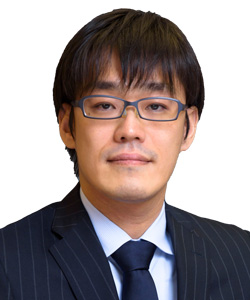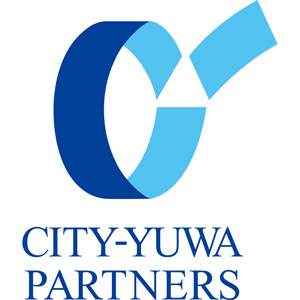The adoption of renewable energy has been on the uptick in Japan, especially after the feed-in tariff (FIT) system was introduced in 2012, based on the Act on Special Measures Concerning Procurement of Renewable Energy Electricity by Electric Utilities. In June 2020, the act was amended and renamed the Act on Special Measures Concerning the Promotion of the Use of Renewable Energy Electricity, which will come into effect with some exceptions on 1 April 2022. The feed-in premium (FIP) system was added under the amended law.

Partner at City-Yuwa Partners in Tokyo
T: +81 3 6212 5599
E: yusuke.sugihara@city-yuwa.com
This article focuses on the treatment of solar power generation. The amended law will be referred to as the “new renewable energy act”, while both laws before and after the amendment will be referred to as the “renewable energy act”.
FIT and FIP systems
FIT is a system where the government guarantees that electricity utilities will purchase power generated by renewable energy sources at a certain fixed price (procurement price) for a certain fixed period. A business operator who obtains certification under the renewable energy act is entitled to conclude a power purchase agreement (specified agreement) with an electricity utility. Based on this specified agreement, the purchase by the electric utility is guaranteed over the procurement period at the procurement price.
Both the procurement price and period are determined each fiscal year by the Minister of Economy, Trade and Industry for each category of renewable energy power generation facilities. The procurement price is determined based on the cost that would normally be required if the project were carried out efficiently, considering price targets, appropriate profit margins, etc. The procurement price for solar power facilities above a certain scale is subject to a bidding system, and determined based on the bidding results.
FIP is a system in which the difference between the standard price (as defined under the new renewable energy act) and the reference price is granted to a business operator as a premium over a certain fixed period (grant period). Under the FIP system, business operators sell electricity in the wholesale power market or through negotiated transactions. The purchase price is also determined in the wholesale power market, or through negotiated transactions. Business operators receive a supply promotion subsidy defined under the renewable energy act, paid monthly by Japan’s Organisation for Cross-regional Co-ordination of Transmission Operators (OCCTO).
As with the procurement price, the “standard price” in the FIP system is determined based on the cost that would normally be required if the project were carried out efficiently, considering price targets and appropriate profit margins, etc. The “reference price” is determined based on the average price in the wholesale electricity trading market. With the FIP system, the price of electricity sold is linked to the market price. A supply promotion subsidy is paid in addition to the price, so there is an incentive to increase supply during peak electricity demand periods when the market price is high. The FIP system is intended to upgrade the renewable energy electricity business and promote its integration into the general electricity market. The FIT and FIP systems will coexist under the new renewable energy act.
Price and period under FIT or FIP of solar power generation
| Scale of Solar Power Generation Facility | FY2021 Procurement Price (FIT) |
FY2022 Procurement Price (FIT) and Standard Price (FIP) |
Procurement Period (FIT) and Grant Period (FIP) |
|---|---|---|---|
| 1000kW or above | Determined by bidding | FIP system applies, and standard price is determined by bidding | 20 years |
| 250kW or more and less than 1000kW | Determined by bidding | The FIT or FIP system can be selected If the FIT system is selected, procurement price is determined by bidding. If the FIP system is selected, the standard price is 10 JPY/kWh |
20 years |
| 50kW or more and less than 250kW | JPY11/kWh | The FIT or FIP system can be selected Procurement price and standard prices are JPY10/kWh |
20 years |
| 10kW or more and less than 50kW | JPY12/kWh | The FIT system applies, procurement price is JPY11/kWh | 20 years |
| Less than 10kW | JPY19/kWh | The FIT system applies, procurement price is JPY17/kWh |
10 years |
Note: The description of FY2022 in the table is based on the materials released by the government to date and has not yet been officially determined
Certification of project plan
Project plan. For the FIT or FIP system to apply to a project, a business operator must prepare a renewable energy power generation project plan and obtain a certification from the Ministry of Economy, Trade and Industry. The plan must meet all of the certification criteria. To obtain a certification, it is necessary to secure the project site and determine the facility, such as output, panels and power conditioning system, and basic design. To secure the project site, it is necessary to look into land-related laws and regulations. If an environmental assessment is required, the procedures need to be initiated before applying for certification. It is also necessary to apply to the relevant transmission and distribution utility for a connection study, and then obtain their consent for the grid connection before applying for certification.
Delay in commencement of operation. After certification of the project plan is obtained, the construction of solar power generation will proceed. It should be noted that a delay in the commencement of operation may have negative consequences such as shortened procurement or grant period, and nullification of certification. For solar power generation, the deadline for commencement is three years from the date of certification, with some exceptions. If the operation commences after the deadline, the procurement or grant period will be shortened by the delayed period. Under the new renewable energy act, a certification of the project plan is nullified if the operation of the power generation does not commence within a certain period after the date of certification of project plan.
Changes to project plan. If a certified project plan is to be changed, a certification of change must be obtained, except in minor cases. The procurement price or standard price applicable to a project may be changed for any of the following changes to the project plan: (1) increase in the output of power generation facility; (2) increase (3kW or more, or 3% or more) or decrease (20% or more) in the total output of solar cells; (3) installation of private power generation equipment, etc; and (4) change in the date of the grid connection agreement.
Rules, issues to note
The rules and issues that affect the profitability and cash flow of solar power projects are:
(1) To ensure a reliable reserve for the cost to decommission solar power facilities, all certified solar power generation projects of 10kW or more are required to set aside a reserve. The funds for the reserve will be deducted from the procurement price of the FIT system, or the supply promotion subsidy of the FIP system, and will be maintained at the OCCTO, except in cases where maintaining the reserve internally is allowed.
(2) The utilities may instruct the business operators to curtail output if the electricity supply is expected to exceed the demand, even after taking the prescribed avoidance measures. Solar power projects in any area in Japan for which a grid connection agreement is entered into on or after 1 April 2021 are subject to output control without restriction and compensation.
(3) Wheeling charges have been paid by retail electricity providers to transmission and distribution utilities. Discussions are underway to make the power producer side bear a part of the cost.

City-Yuwa Partners
Marunouchi Mitsui Building, 2-2-2 Marunouchi, Chiyoda-ku
Tokyo – 100 0005, Japan
www.city-yuwa.com































